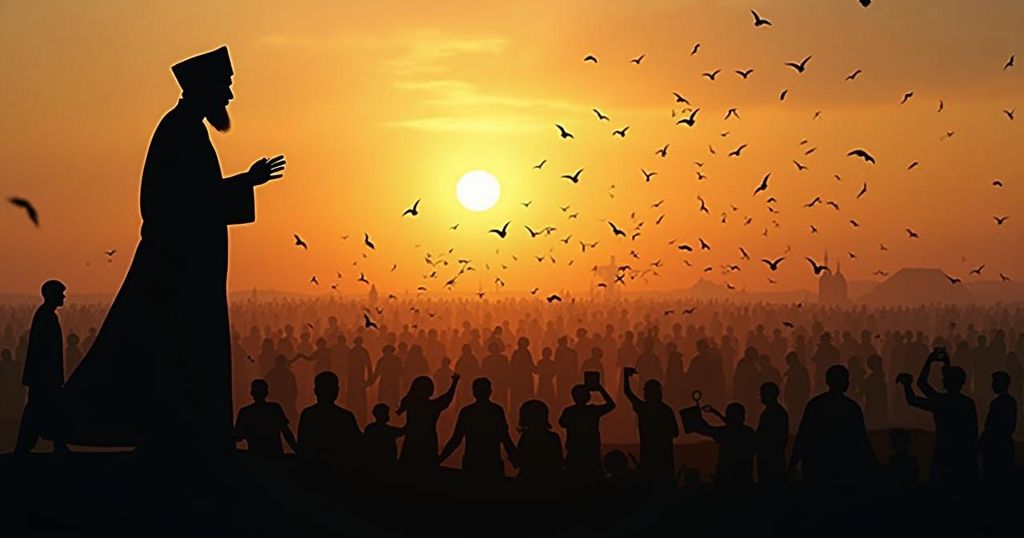Global Mourning for Hassan Nasrallah Following Assassination

Protests in numerous countries, including Lebanon, Iran, and the West Bank, were held on Saturday to mourn Hassan Nasrallah’s assassination, who was killed in an Israeli airstrike. As the leader of Hezbollah for over 32 years, he held significant influence in the Middle East and advocated for Palestinian unity, opposing Israeli actions.
On Saturday, protests erupted across multiple nations, including Lebanon, Iran, and the West Bank, as crowds gathered to mourn the assassination of Hassan Nasrallah, the prominent leader of Hezbollah. Mr. Nasrallah was killed in an Israeli airstrike that occurred on Friday, targeting residential buildings in the vicinity of Beirut, Lebanon’s capital. As a significant figure for over three decades, he transformed Hezbollah into a formidable political entity and one of the world’s most heavily armed non-state organizations with substantial backing from Iran. Nasrallah’s legacy included strong opposition to Israel, which he referred to as the “Zionist entity,” advocating for a unified Palestine that upholds equality for Muslims, Jews, and Christians alike. He was renowned for his powerful oratory skills and garnered deep affection among many Shiite Muslims, a demographic historically viewed as marginalized within the Arab world. Additionally, Nasrallah’s governance contributed to the establishment of a quasi-state in Lebanon, which provided essential social services to its communities.
The assassination of Hassan Nasrallah marks a significant moment in the complex political landscape of the Middle East. Nasrallah, having led Hezbollah for over 32 years, was instrumental in shaping the group into a major political force in Lebanon and a fierce opponent of Israel. His leadership was characterized by a strong alliance with Iran and a commitment to representing the interests of the Shiite community in the region. The implications of his death could reverberate across national borders, affecting both local governance and international relations in the context of Israel and Palestine.
In conclusion, the worldwide protests reflecting the mourning of Hassan Nasrallah’s death illustrate his deep impact as a leader within Hezbollah and the Shiite community. His assassination not only signifies a pivotal change for Hezbollah but also potentially alters the political dynamics within Lebanon and the wider Middle East. The reverberations of this event will likely shape future actions and responses among political entities and nations historically involved in the region’s conflicts.
Original Source: www.nytimes.com








